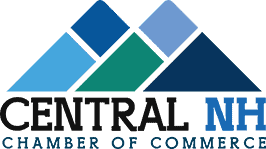Typical Schedule Structure in Partial Hospitalization Programs
Partial hospitalization programs (PHP) typically operate on a structured daily schedule that runs Monday through Friday, with sessions generally lasting between five to six hours per day. The typical program hours often begin in the morning, around 9:00 AM, and continue until mid-afternoon, allowing participants to maintain some normalcy in their daily routines.
During these hours, individuals engage in various daily therapy sessions, including group therapy, individual counseling, and specialized therapeutic activities. The structured schedule commonly incorporates breaks between sessions, medication management meetings when necessary, and skill-building workshops. Programs may also include educational components about mental health, coping strategies, and wellness planning, while maintaining flexibility to accommodate individual treatment needs within the standardized framework.
Factors That Influence PHP Meeting Days
Several key factors determine the scheduling and frequency of meeting days in partial hospitalization programs, with each facility carefully considering individual needs, clinical requirements, and operational capabilities.
Treatment frequency is tailored to accommodate both acute and stabilizing phases of care, while maintaining therapeutic momentum through consistent attendance. Work commitments, family obligations, and transportation accessibility greatly influence program scheduling. Additionally, facilities must balance staffing availability, group therapy dynamics, and space limitations when establishing meeting days.
Clinical considerations, such as the intensity of psychiatric symptoms, medication management requirements, and therapeutic modalities being utilized, further shape the structure of PHP schedules. Programs may adjust meeting frequencies based on individual progress, treatment goals, and the overall level of care needed for ideal recovery results.
Flexibility and Alternative Scheduling Options
While traditional PHP schedules typically follow set patterns, modern programs increasingly offer flexible arrangements and alternative scheduling options to accommodate diverse client needs and circumstances. Programs may provide flexible hours through morning or afternoon sessions, allowing participants to maintain work or educational commitments while receiving necessary treatment.
Alternative formats have emerged to enhance accessibility, including hybrid models that combine in-person and virtual sessions, weekend programming for working professionals, and stepped schedules that gradually shift individuals from more intensive to less intensive participation. These adaptable approaches ensure that individuals can engage meaningfully in treatment while managing their daily responsibilities. Some facilities also offer compressed schedules, where participants attend longer sessions on fewer days, or extended evening programs to accommodate various lifestyle demands.














